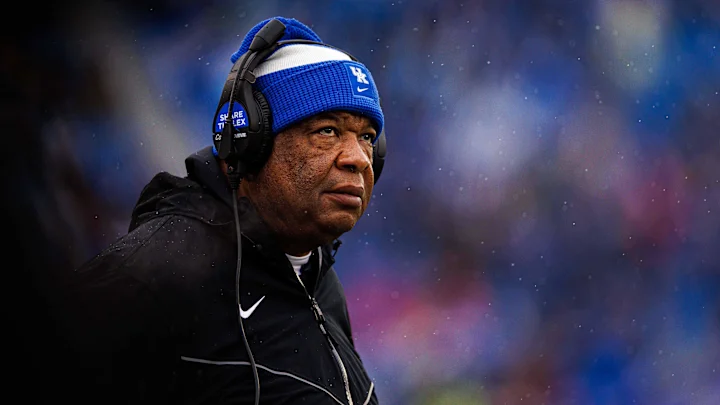Vince Marrow’s Departure from Kentucky to Louisville: A Pivotal Shift in College Football Rivalry and Recruitment
In a move that has sent ripples through the college football community, Vince Marrow, a long-standing and influential figure in Kentucky Wildcats football, has accepted a position with the University of Louisville Cardinals. This transition marks a significant shift in the dynamics of the Kentucky-Louisville rivalry and has profound implications for both programs.
Marrow’s tenure at Kentucky began in 2013, where he quickly became a cornerstone of the Wildcats’ coaching staff. Serving as the associate head coach and recruiting coordinator, Marrow played a pivotal role in transforming Kentucky’s football program into a competitive force in the Southeastern Conference. His expertise in recruiting, particularly in the fertile grounds of Ohio, was instrumental in bringing top-tier talent to Lexington. Under his guidance, Kentucky saw a significant uptick in player development and program visibility.
However, Marrow’s decision to leave Kentucky was not made lightly. Reports indicate that the University of Kentucky’s athletic department was unaware of Marrow’s discussions with Louisville until the news broke publicly. This lack of communication has raised questions about internal dynamics and the factors influencing his departure.
The timing of Marrow’s move is particularly noteworthy. He has joined Louisville as the Executive Director of Player Personnel and Recruiting, a role that mirrors his previous responsibilities at Kentucky but with added authority over roster management and the transfer portal. This position places Marrow at the forefront of Louisville’s recruiting efforts, directly impacting the competitive landscape between the two programs.
Marrow’s relationship with Louisville head coach Jeff Brohm is also a significant factor in this transition. The two have a longstanding professional relationship dating back over 25 years, which likely played a role in Marrow’s decision to reunite with Brohm in Louisville.
For Kentucky, Marrow’s departure leaves a substantial void. His influence on recruiting and player development was a cornerstone of the program’s recent successes. Head coach Mark Stoops now faces the challenge of filling this gap and maintaining the momentum that Marrow helped build. Reports suggest that Derek Shay, currently an offensive analyst with the Wildcats, is a leading candidate to assume the role of tight ends coach, a position previously held by Marrow.
The ripple effects of Marrow’s move extend beyond the immediate coaching staff. The Kentucky-Louisville rivalry, already one of the most intense in college sports, has been further fueled by this personnel change. Fans and alumni of both programs are keenly aware of the implications, and the upcoming seasons are poised to add new chapters to this storied rivalry.
In conclusion, Vince Marrow’s decision to leave Kentucky for Louisville is a landmark event in college football. It underscores the fluid nature of coaching careers and the intricate relationships that influence program development. As both Kentucky and Louisville navigate this transition, the eyes of the college football world will be watching closely to see how this shift impacts the trajectory of both programs.



